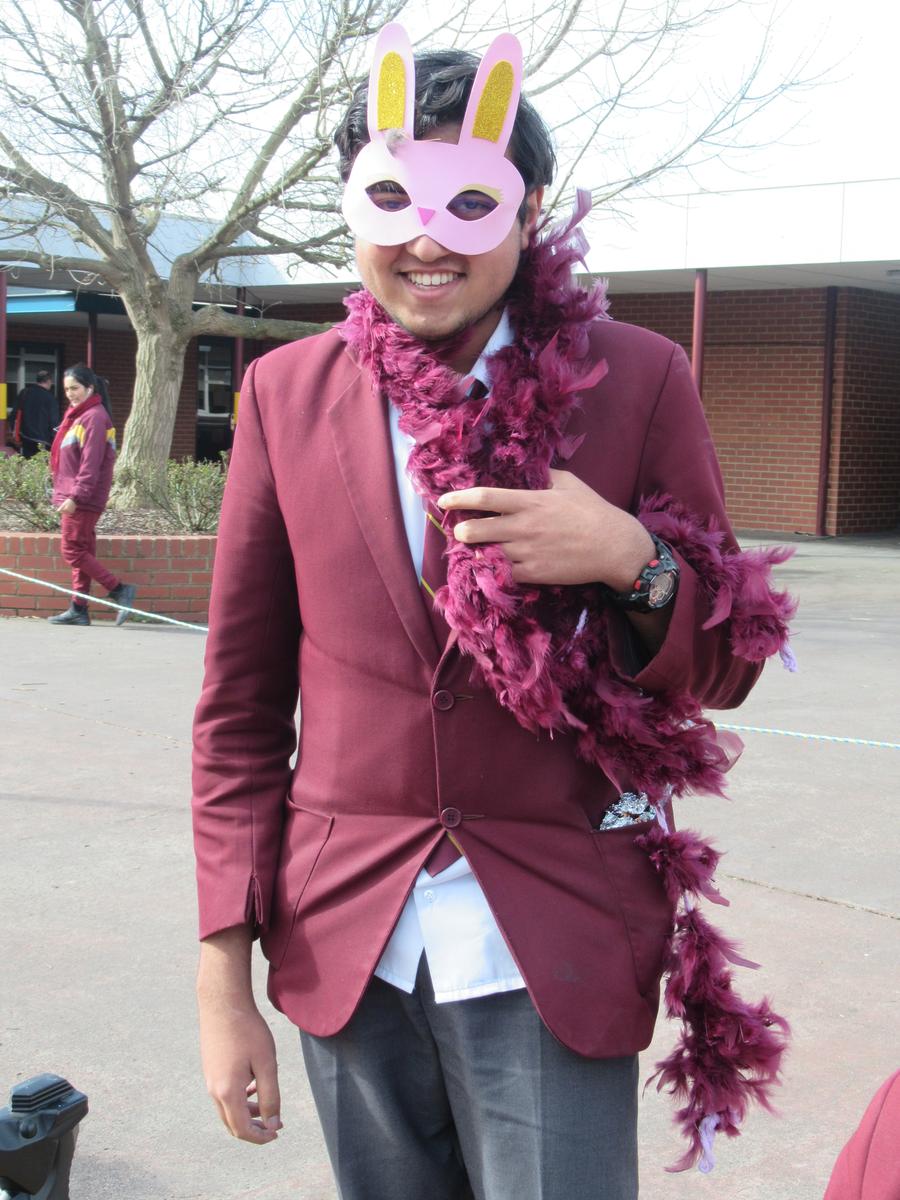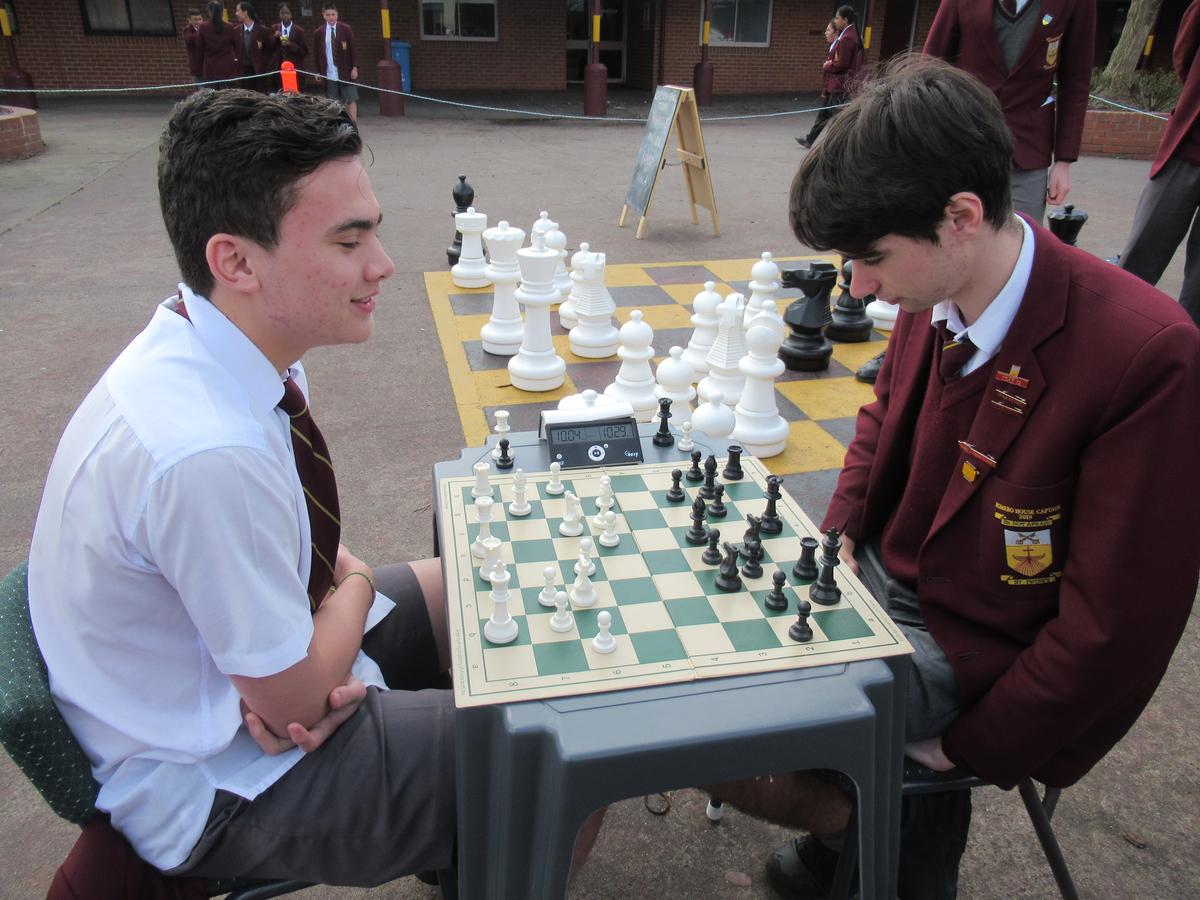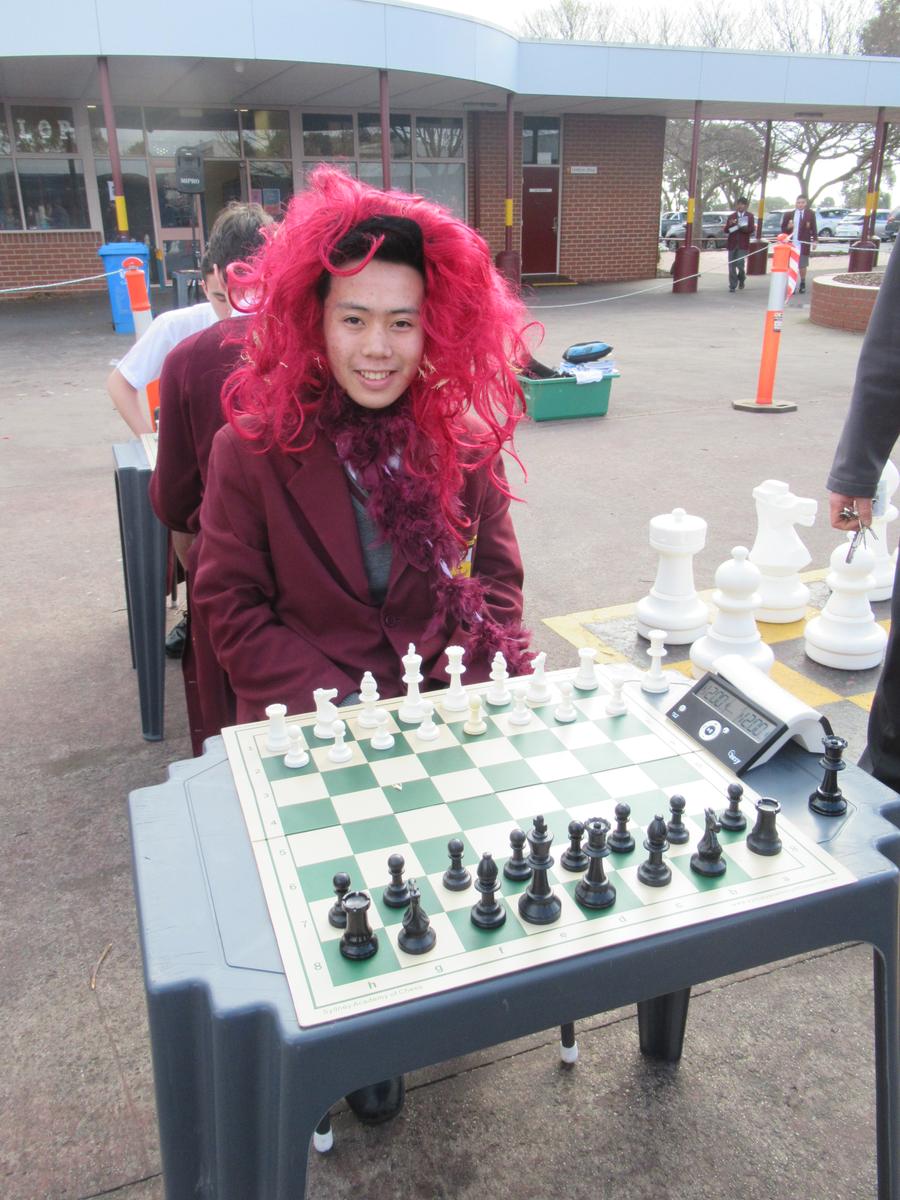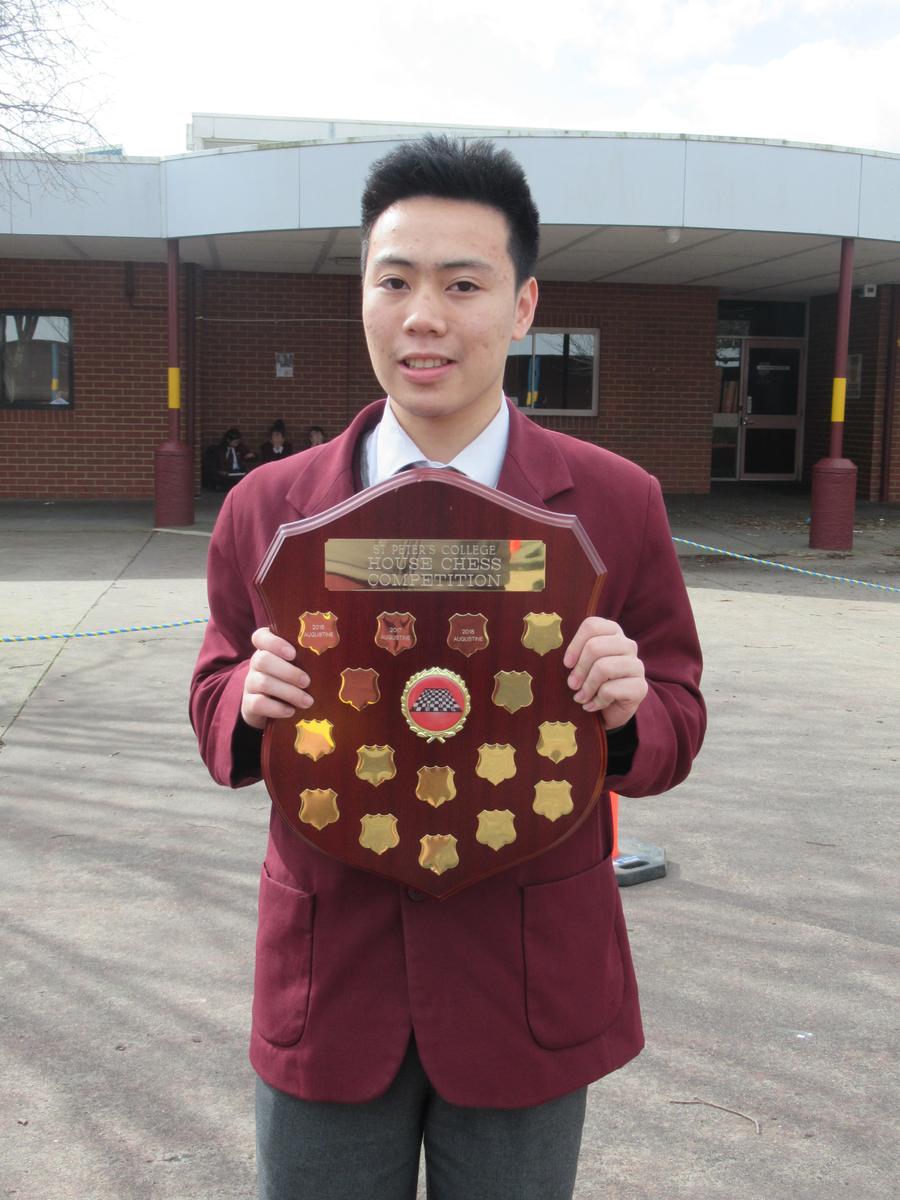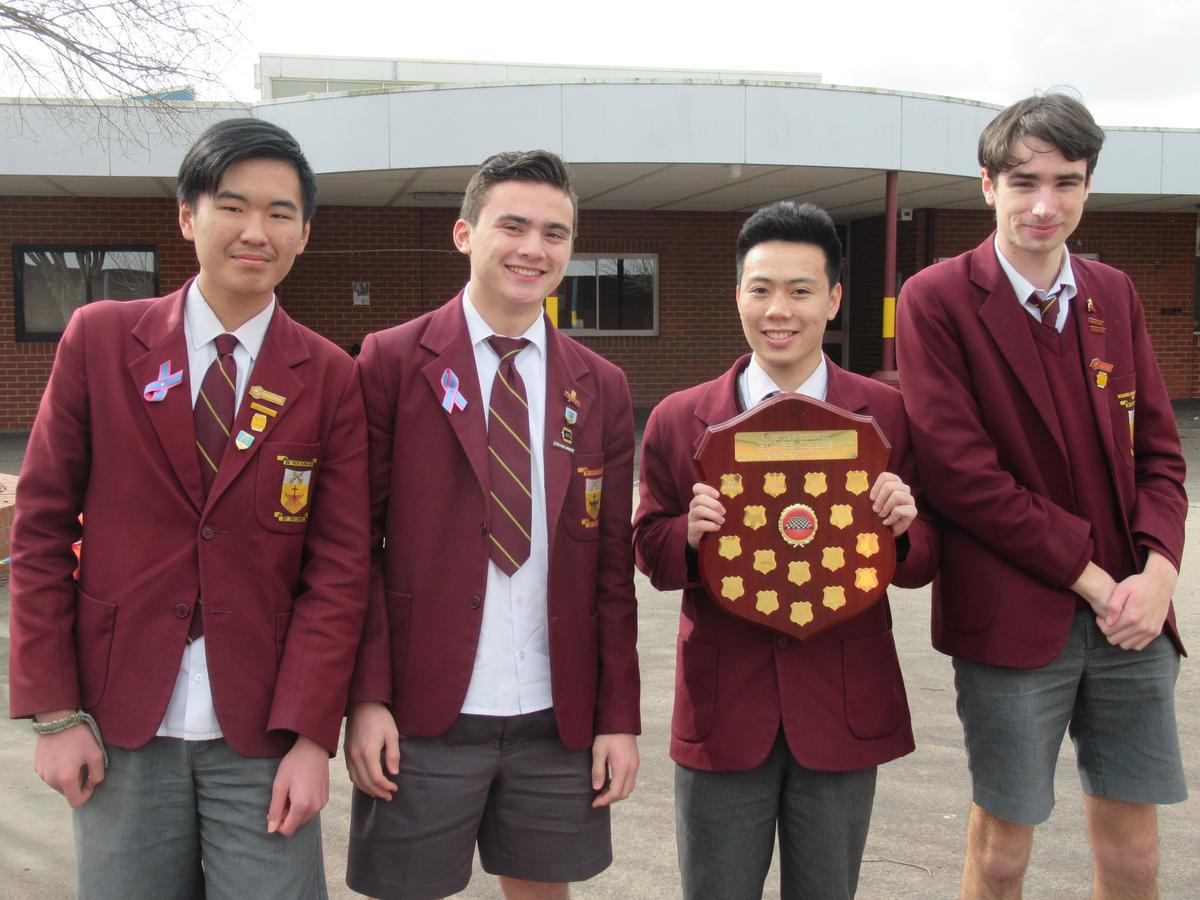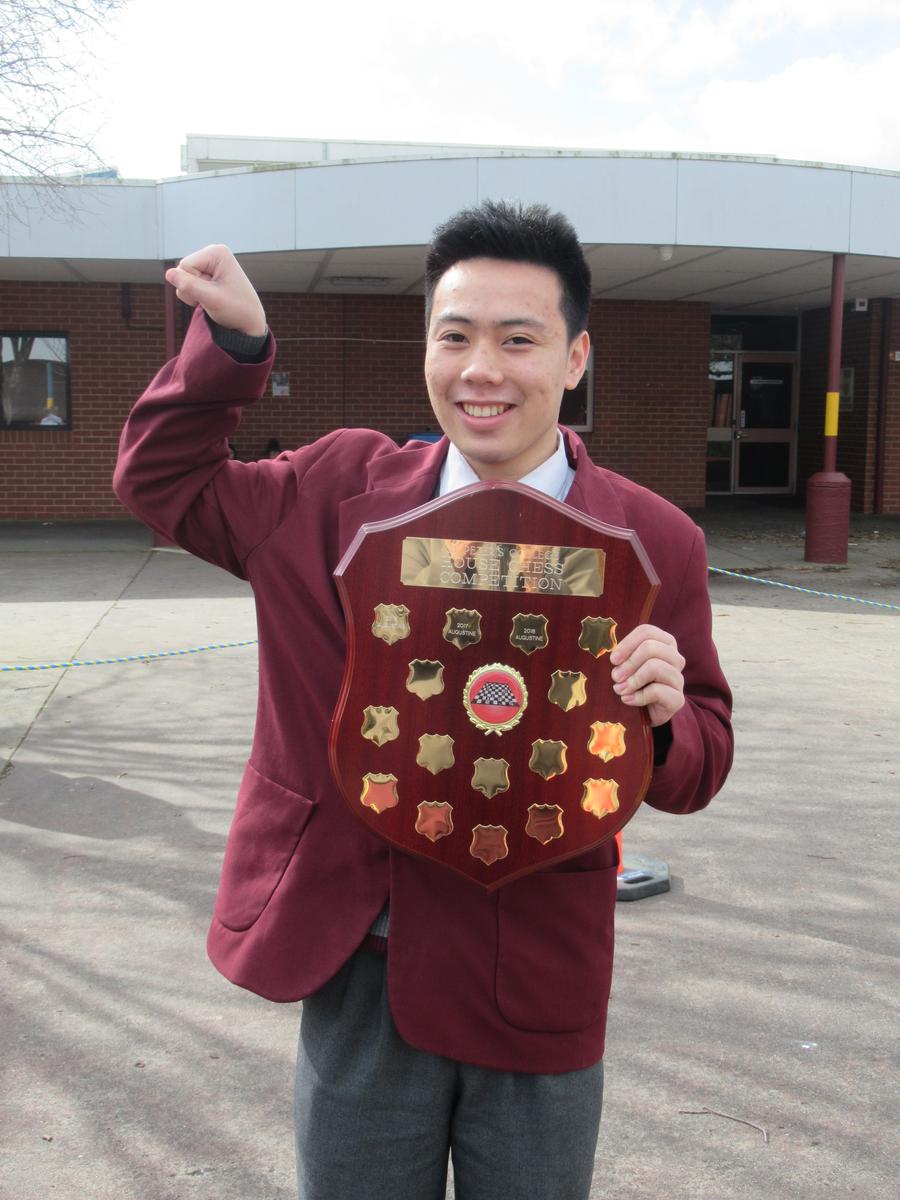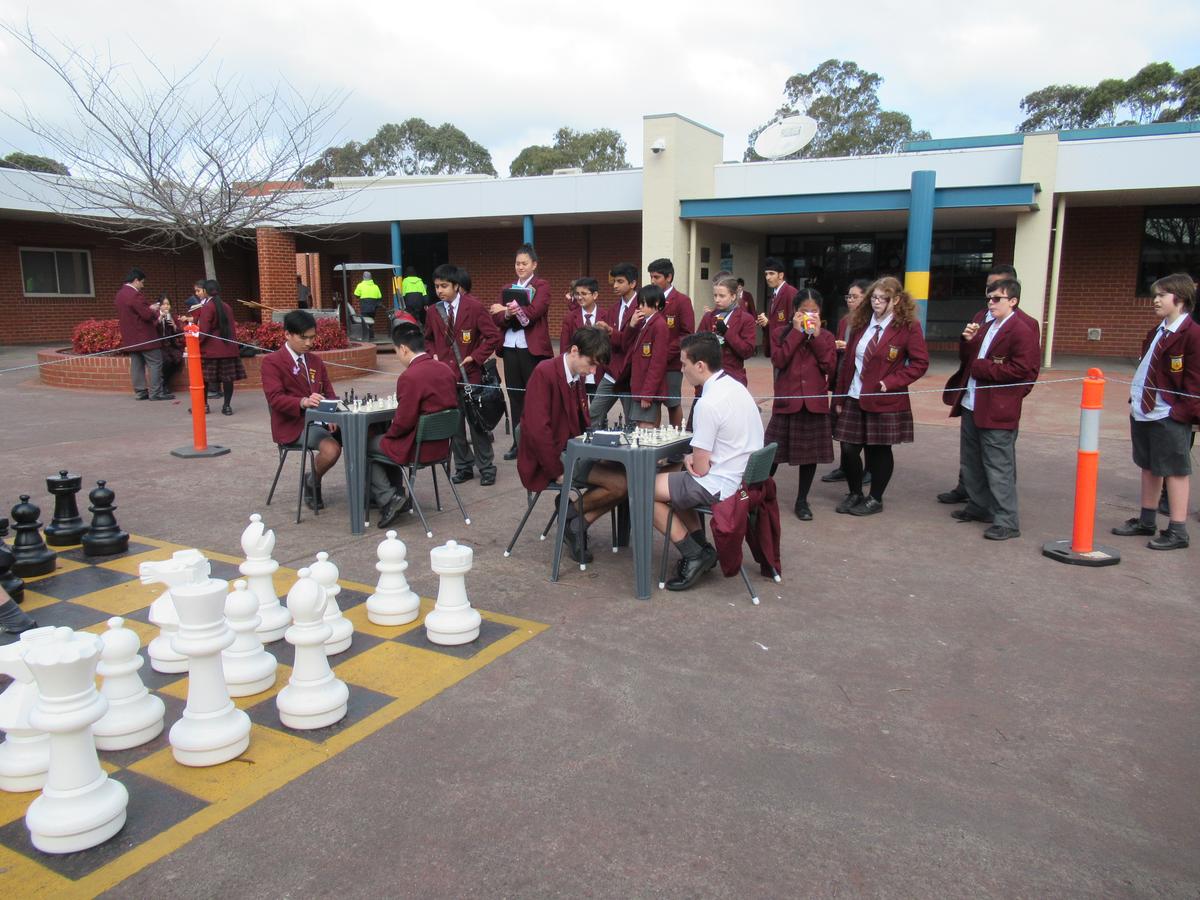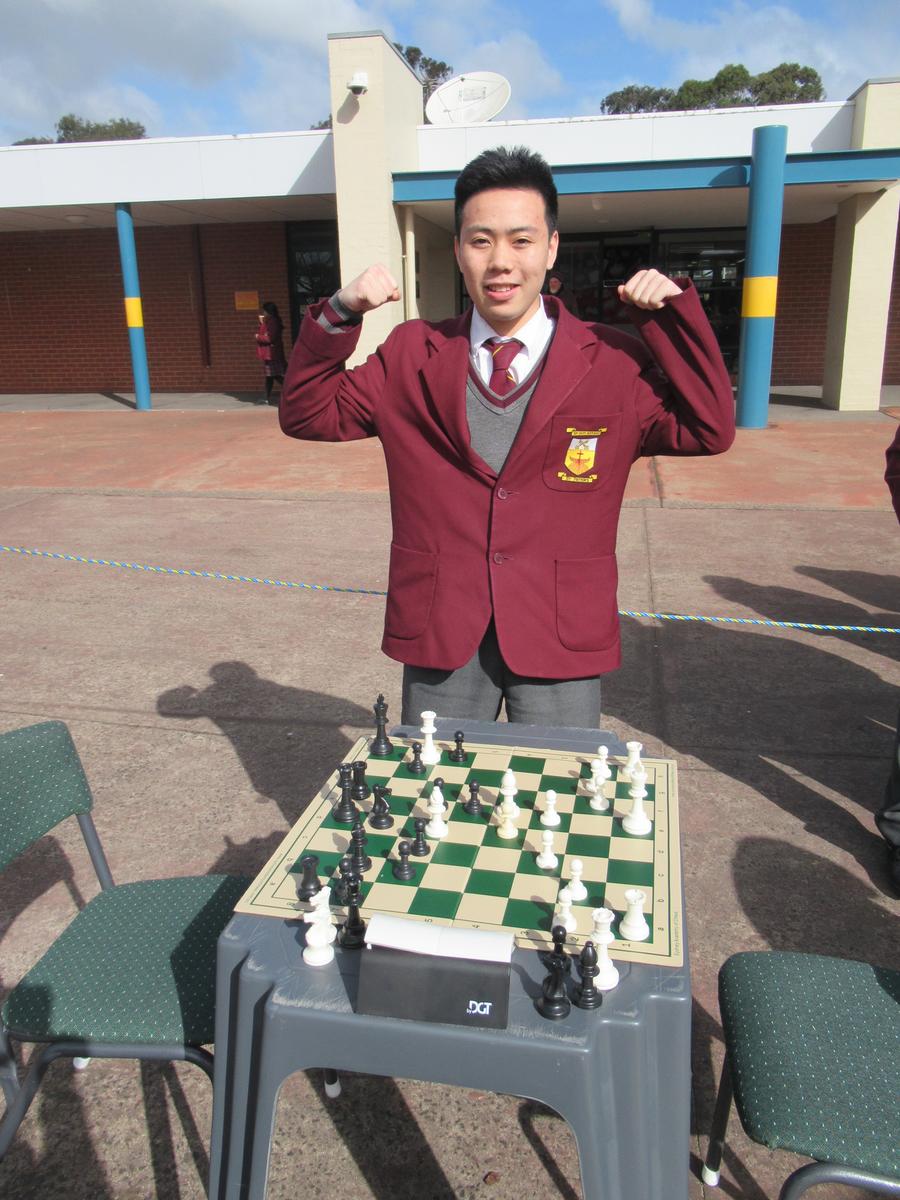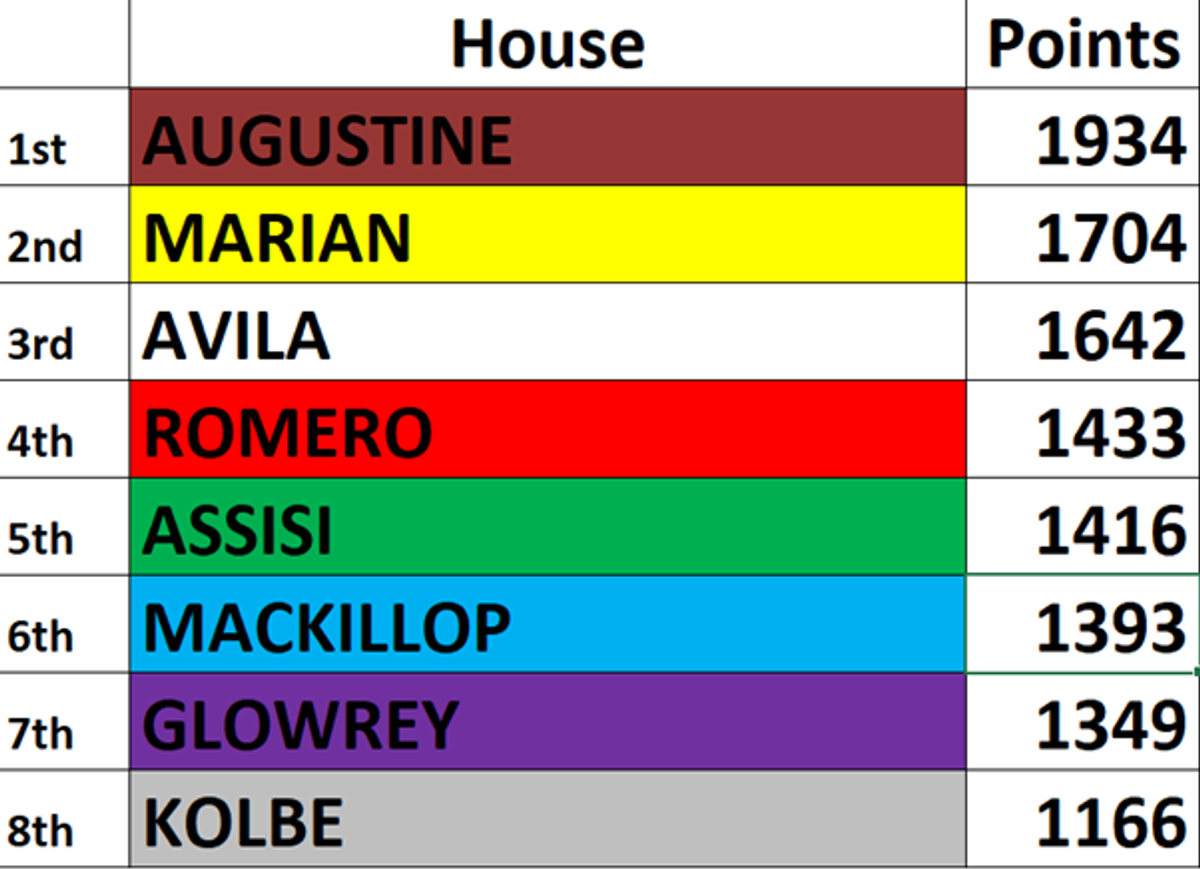Cranbourne Campus News
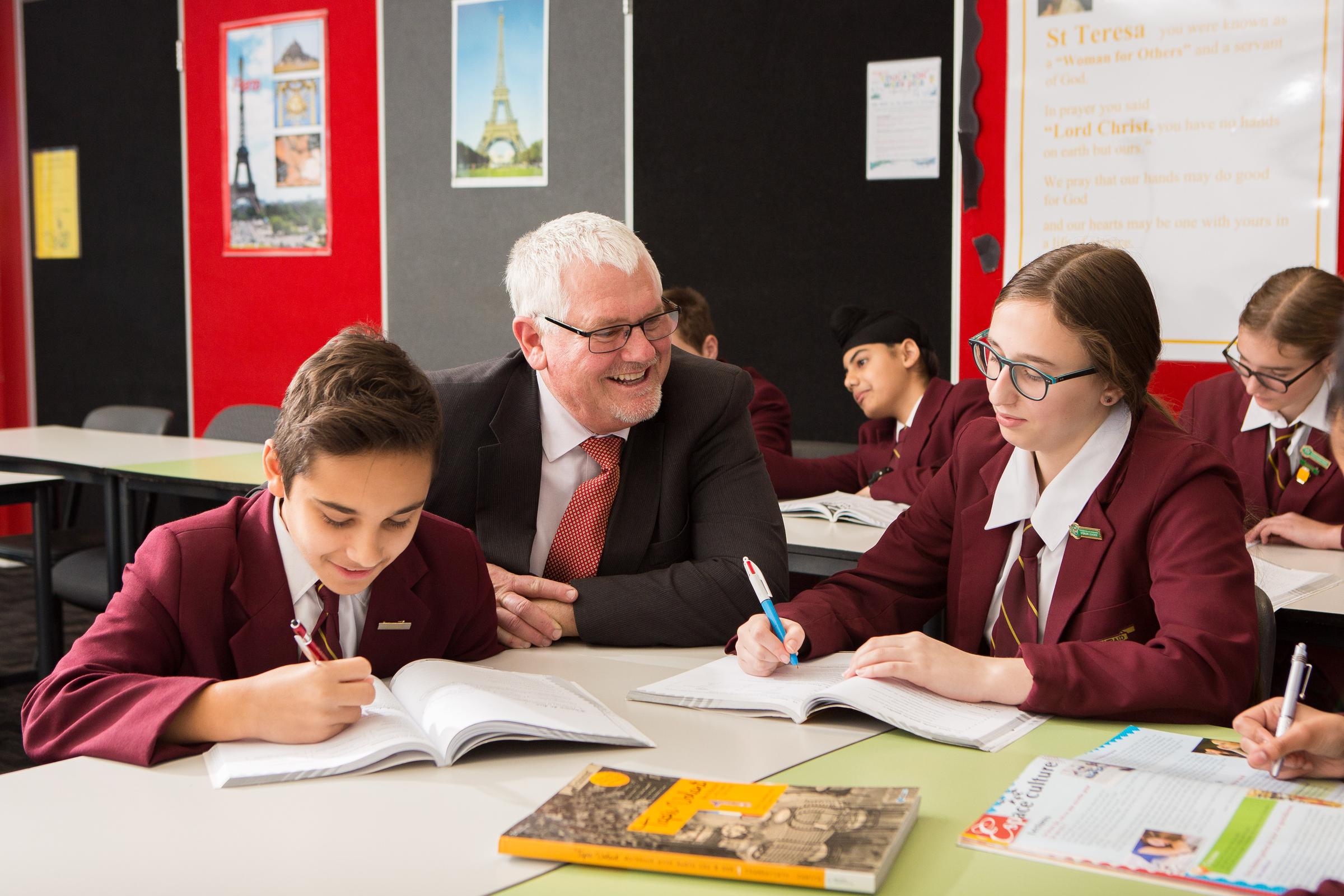
House Chess Competition
After another intense Inter-house Chess Competition for the McGuigan Shield concluded on Wednesday this week with two finals played in the Central Courtyard. Jason Chan of Marian House took on Anthony Ouch of Augustine House in the Grand Final for the ultimate honour. Augustine were eventual winners again, making it four years in a row. Darcy Paulka of Romero was able to defeat Finlay Moore of Avila in the battle for third and fourth.
Congratulations to all involved and particular thanks to Mr Chris O’Hara for all his work in ensuring the competition was a wonderful success. The final results were:
Place | House | House Points |
1 | Augustine | 125 |
2 | Marian | 100 |
3 | Romero | 75 |
4 | Avila | 60 |
5 | Assisi | 50 |
6 | Glowrey | 40 |
7 | MacKillop | 25 |
8 | Kolbe | 25 |
Mixed Netball Competition
The annual Inter-house mixed netball competition began this week and we are about to enter the semi-finals. The busy term 3 calendar has meant that we have had to run a knock out competition this year and run the netball over just 2 weeks. This has been a popular event that has been made possible through the energy of the Sports Captains, Lara Breen and Damon Quirk and the generous support of the umpires including Adelle St Mart, Teileah Pullen, Charlette Cowan, Miss Fiona McKenna, Ms Stephanie Lomas, Ms Cathy Heijden and Mr Chris Landman.
The progressive ladder is:
POSITION | HOUSE | POINTS | FOR | AGAINST | PERCENTAGE |
1 | Marian | 2 | 16 | 1 | 1600.00 |
2 | Avila | 2 | 20 | 9 | 222.22 |
3 | Kolbe | 2 | 7 | 4 | 175.00 |
4 | Assisi | 2 | 10 | 6 | 166.67 |
5 | MacKillop | 0 | 6 | 10 | 60.00 |
6 | Glowrey | 0 | 4 | 7 | 57.14 |
7 | Augustine | 0 | 9 | 20 | 45.00 |
8 | Romero | 0 | 1 | 16 | 6.25 |
McGuigan Shield
With Augustine House’s victory in the Chess Competition, it would look that they are almost assured of victory in the McGuigan Shield. Nevertheless, I am sure the House Leader, Mr Gerard Brown, will not be letting them get complacent and encourage them to work hard at gaining points in the upcoming House Beep Test and Environment Shield.
The progressive ladder is:
Youth Mental Health First Aid
At the end of Term 3, on Thursday, 19 & Friday, 20 September 2019, the school is hosting a Youth Mental Health First Aid course. This is an important course for equipping anyone working with young people (parents, teachers and others) with the skills to assist people exhibiting poor mental health. At St. Peter’s College, we ensure all our Student Well-being staff and House Leaders are trained in this first aid course. The course is also open to parents who may wish to participate. Please read the attached flyer for further details.
Sunsmart Policy
With the current chilly blast of cold and wet weather from Antarctica, it seems strange to be thinking about the school’s Sunsmart Policy. However, typically, between mid-August and late April, UV levels can reach three in Victoria. The sun protection times are a forecast from the Bureau of Meteorology for the time of day at which UV levels are expected to reach three or higher. At these levels, sun protection is recommended for all skin types.
Sun protection is a shared responsibility. At St. Peter’s College, we can remind parents they have an important role in ensuring that their child develops and maintains healthy sun protection habits. Parents can help their child become aware of when UV rays will be dangerous by being role models and engaging in sun smart behaviour. We too, will encourage students to wear the St. Peter’s College cap or hat or by moving to shaded areas when outdoors. Sunscreen is always available at Student Reception for students to use. Other good ideas for keeping sun smart can be found at the following website.
Parental Engagement
There are three common principles for effective parental engagement, however, this week I will consider just one of these, academic socialisation. Next week we will consider the other two important principles, parental role construction and parenting styles.
Academic socialisation
Academic socialisation are types of parental behaviours that can be shown to have a positive impact on their child’s learning.
Academic socialisation involves:
- Parents telling their children about their own high expectations for education and letting them know that learning is both valuable and enjoyable.
- Parents chatting with their children about learning strategies.
- Parents linking school work to what is happening in the world around them and other topics the parents have good knowledge about. This may mean sitting with children and watching or listening to the news on the television or radio. Or, it may mean sitting with them as you share an online source of news and current affairs.
- Parents encouraging the educational goals (of their child…not their parental goals for the child) and helping to make plans for the future. This means looking on your child’s ePortfolio to learn and sign off on their semester goals. Encourage your child to refocus on their goals and help them to achieve this. If they want to go to a certain university or TAFE college, are you prepared to take them to the Open Day?
- Parents providing a stimulating home learning environment, and making learning enjoyable and rewarding. This may involve providing a quiet place where work can happen, however, it is important that the space is not so isolated that technology can readily be seen. Parenting experts such as Michael Grose argue that students should not study in their bedroom as this room should be identified with rest and recreation rather than stressful work. Not all of us can have a study in the house and the kitchen or dining room table may not be conducive to quiet and undistracted study. It can be a challenge, but it is worth having the conversation with your young person about the best place they can do homework and study.
- Parents focusing on activities which are directed at building students’ decision-making and problem solving skills and affirming their growing autonomy, independence, and academic abilities.
Academic socialisation considers parental involvement that focuses on the needs of the child, including independence and autonomous decision-making. This is especially important for secondary school students as it is not dependent on parents maintaining relationships with every teacher. This can be unrealistic. Instead, academic socialisation is trying to develop abilities in students over a gradual period of time allowing them to assess their own goals, predict their results and the consequences of their own actions. Finally it allows them to learn from their own successes and failures.
I present this as a chance to explore ways of joining us teachers in partnership as we consider various tried and tested ways of improving your children’s, our students, learning outcomes. Thanks for being part of that journey with us.
David Hansen
Deputy Principal - Head of Cranbourne Campus

